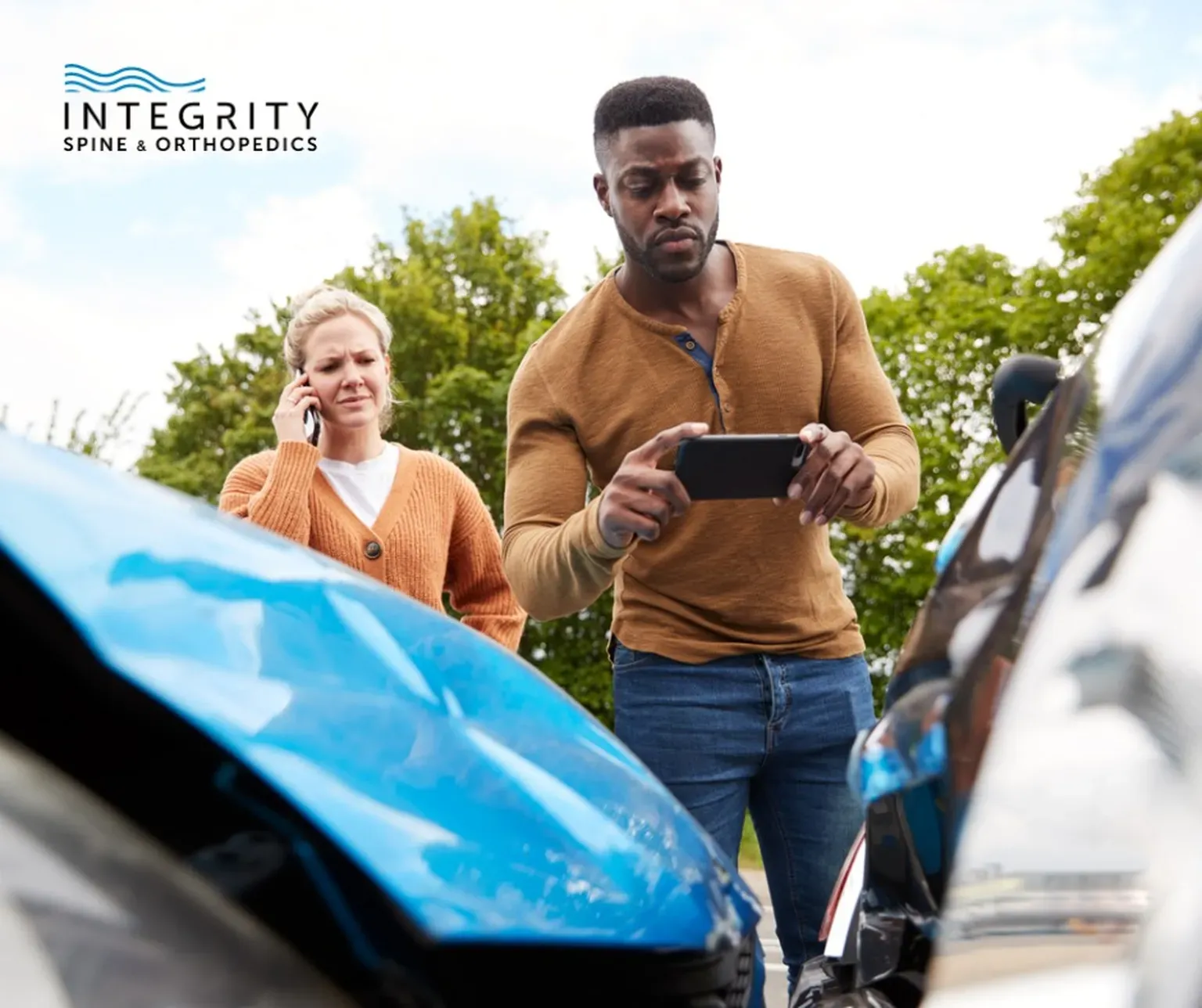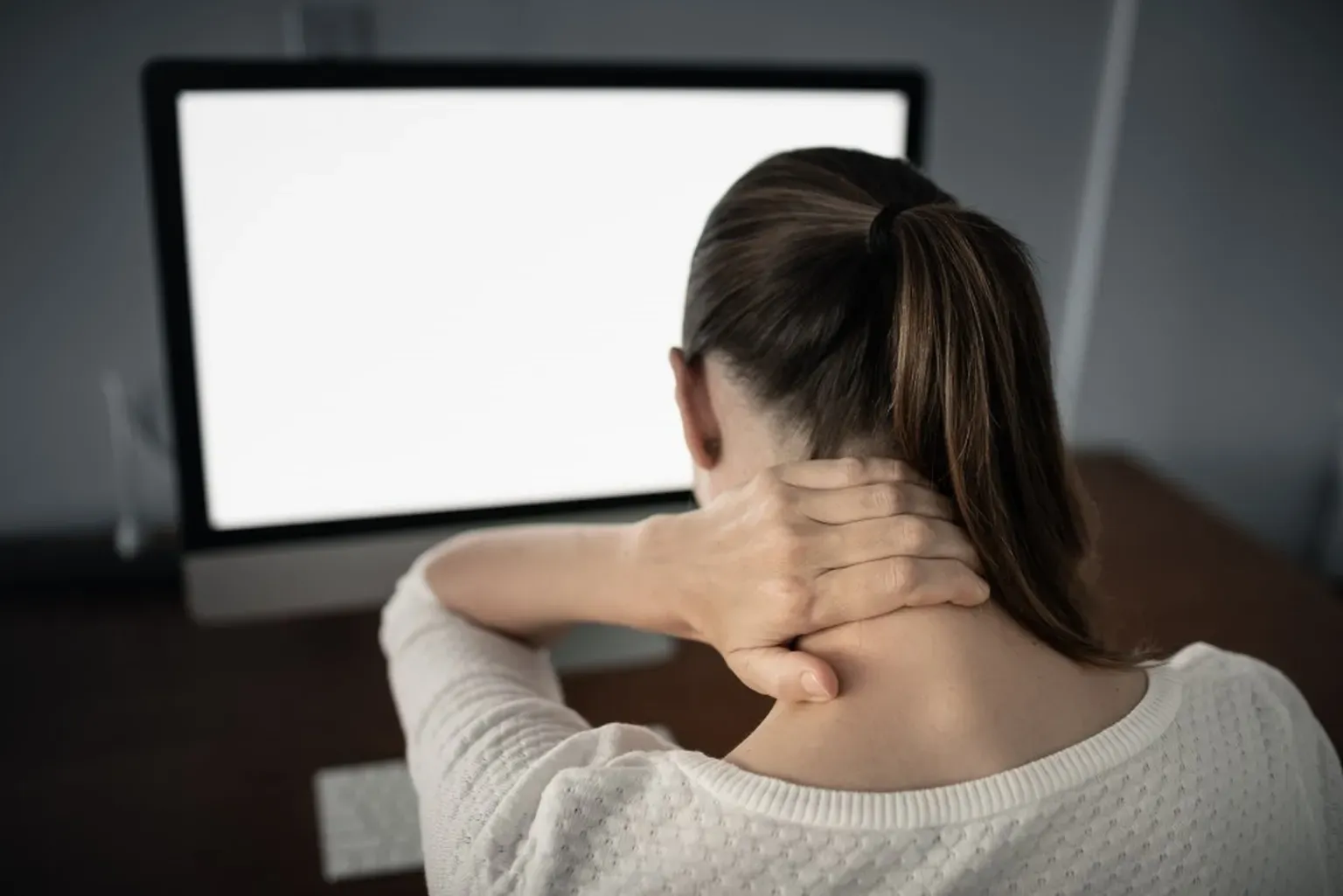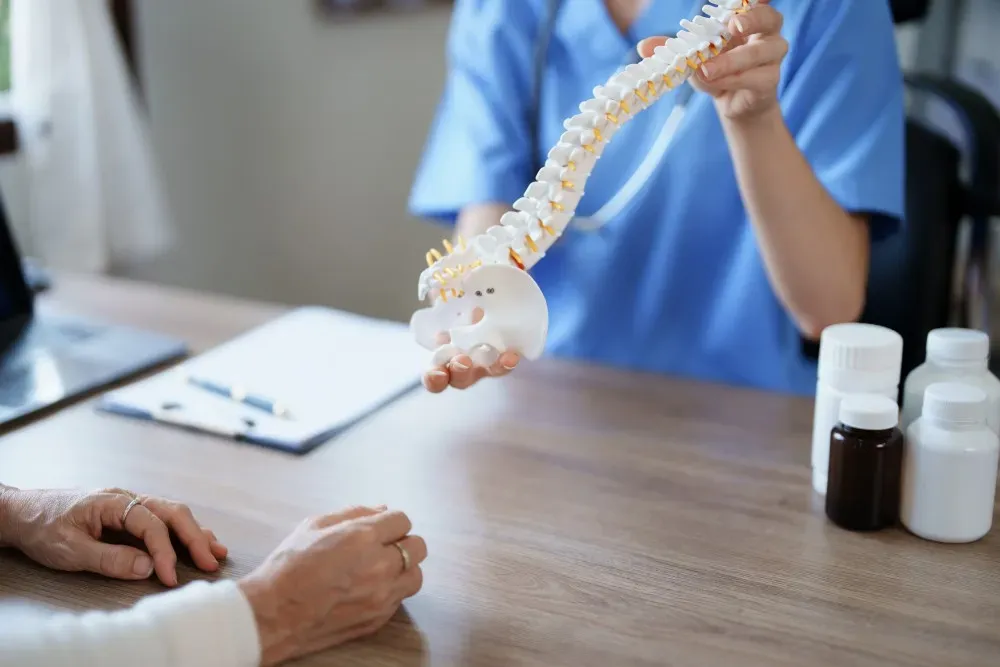Neurosurgery & Orthopedic Surgeons in Jacksonville

Take These 4 Steps After a Car Accident
Being in a car accident is a scary, stressful experience, even if the crash is a minor one. Following a car collision, the most important first action you can take is to stay calm, even though you may feel scared, dazed, confused, in pain or even angry.
Being in a car accident is a scary, stressful experience, even if the crash is a minor one. Following a car collision, the most important first action you can take is to stay calm, even though you may feel scared, dazed, confused, in pain or even angry.
During a stressful situation, you’ll need to have a cool head so you can take the necessary actions to protect yourself and others. If you feel overwhelmed, take a few deep breaths with shorter inhales and longer exhales. Then follow the 4 steps listed below.
1. CALL 911
Call 911 to report a car crash, even if the accident is minor. Reporting a crash helps protect you and all other people involved in the accident. You, the other driver and any passengers can receive medical attention from EMS to ensure that no one needs immediate medical care.
Additionally, your insurance company may require a police report as part of the claims process. For your own protection, it’s safer to go through your insurance company for damage assessment and resolution following a crash. It can be messy, emotional and expensive to try and work out a resolution with the other driver.
Don’t discuss fault or who’s to blame for the accident with the other driver. Instead, give an accurate, detailed and truthful account of what happened to the reporting police officer.
2. COLLECT INFORMATION AND DOCUMENT THE ACCIDENT
Document the car accident as accurately and thoroughly as you can. You should collect the following information from the other people involved in the accident:
- The name and contact information of the other driver and his or her passengers
- The insurance company and policy number of the other driver’s insurance
- The name and contact information of the police officer on the scene
- The names and contact information of any witnesses to the accident
- A copy of the police report or a report number
Next, you should gather information about the accident itself. It’s helpful to write down or record all the details you remember as soon as possible, while the information is still fresh in your mind. Document the following:
- The date and time of the accident
- The location
- The direction each car was driving in
- Driving conditions: weather, visibility and road conditions
- Personal notes on how the accident occurred
- Photos of both cars and damages
- Photos of visible injuries
You’ll need the above information so you can give an accurate report of events to the police and to your insurance company. The more information you have, the easier the next part of the process will be — filing an insurance claim.
3. FILE AN INSURANCE CLAIM
Call your insurance company to file a claim as soon as possible. Your insurer will have an emergency number you can call at any time of day or night to file a new insurance claim.
The insurance company can tell you what kind of insurance coverage you have and the amount your policy covers for damages and medical bills. They can also tell you if the company will cover some of the expense for a rental car and where you can go to pick up a rental. Your insurer may also give you options for repair shops to assess car damage and make an estimate. In many cases, insurance companies are partnered with rental and repair shops in your area. The primary benefit of using partnered services is that all bills covered under your insurance policy will be sent straight to your insurer, which can streamline the process of resolving your claim.
Once you file a claim, your insurance company will handle the next several steps. They’ll work with the other driver’s insurer to negotiate damages and payments. For your own protection, let your insurer manage your claim instead of speaking to the other driver directly.
4. RECEIVE A MEDICAL CHECK UP
Following a high-impact collision, see a doctor for a medical check up even if you aren’t experiencing visible pain or injuries. Common injuries resulting from car accidents include:
- Whiplash
- A concussion or other head injury
- A herniated spinal disc
- Broken ribs or broken bones
- Soft tissue injuries like strains and sprains
- Cuts, scrapes and bruises
Sometimes, symptoms from injuries like concussions and whiplash do not appear for several hours to several days after an accident. If you felt dazed or stunned right after the crash, you may be concussed and not know it. As a precaution, you should also undergo imaging tests to check for internal bleeding, fractures, soft tissue damage and spinal damage.
Left untreated, car crash injuries can cause permanent damage, loss of mobility and chronic pain.
INTEGRITY SPINE AND ORTHOPEDICS TREATS SPINE AND JOINT CONDITIONS
The final action you should take following a car accident is contacting Integrity Spine and Orthopedics if you suffer a back, joint or soft tissue injury from a crash. Our board-certified team of doctors specializes in pain management, general orthopedics, regenerative medicine and minimally invasive spine surgeries to treat a wide range of spine, muscle and joint conditions.
Don’t let a car collision injury disrupt your life for long. Let us help you get back on your feet and back to participating in the activities you love. Call us today at 904-456-0017 to schedule an appointment or fill out our contact form and we’ll be in touch soon.




